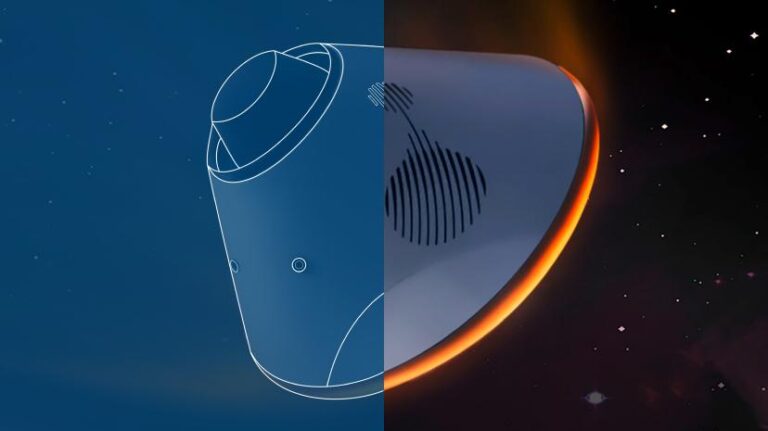For centuries, space was impossible to get to. A vast expanse full of wonder, it went unexplored by mankind until the 1960s. Since then, satellites, rovers and other spacecraft have been sent across the galaxy.
Yet the question of how to make space exploration both accessible and sustainable is one that hasn’t come up too often.
That is, until The Exploration Company set out with a mission to make it greener, all the while democratizing galactic travel and making it affordable.
Their flagship orbital vehicle, Nyx, aims to revolutionize the way cargo and eventually personnel are sent from Earth’s surface to space stations and satellites in orbit and to the lunar surface. Since it’s able to complete multiple missions and be refueled while in orbit, it’s one giant leap for sustainability and mankind.
A member of the 3DEXPERIENCE Lab Accelerator program, The Exploration Company is leveraging CATIA to design, test and optimize Nyx to ensure its space-readiness. To create a craft that meets the company’s expectations for sustainability and operability, they needed a unified platform like 3DEXPERIENCE to ensure perfectly aligned teamwork and communications.
The Exploration Company describes itself as fostering “a global endeavor with European roots.” The company, based in Munich, notes that Europe doesn’t currently have vehicles in its arsenal that can complete the types of missions that Nyx will undertake. As satellites become privately-owned entities, Europe will need to invest in its space industry to send their own astronauts into orbit. By offering a product and service that fulfills this need, the company is giving the continent a future boost for space exploration, both literally and figuratively.
In conjunction with this, the company is committed to developing their orbital vehicle as sustainably as possible. They’re following what’s laid out in the European Union’s Green Deal. The deal emphasizes digital transformation of different industries to make them more climate-friendly. By providing low Earth orbit (LEO) services to fields like life sciences, mining, agriculture and energy development, the company is working towards creating sustainability across various sectors. The LEO space is so crucial for industrial development that even NASA has developed a program dedicated to fostering what they’re calling the low Earth orbit economy.
The Exploration Company aims to launch their first cargo mission into space in 2024, powered both by a commitment to making space exploration open and accessible and a platform that enables them to accomplish exactly that.

